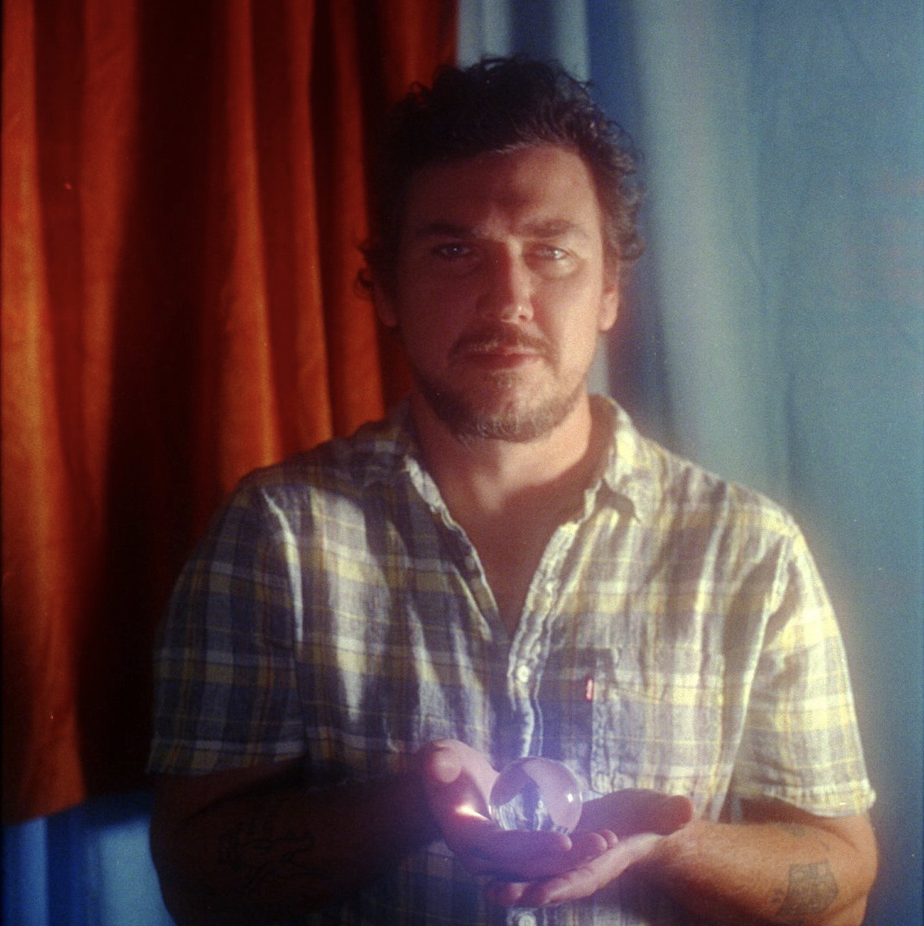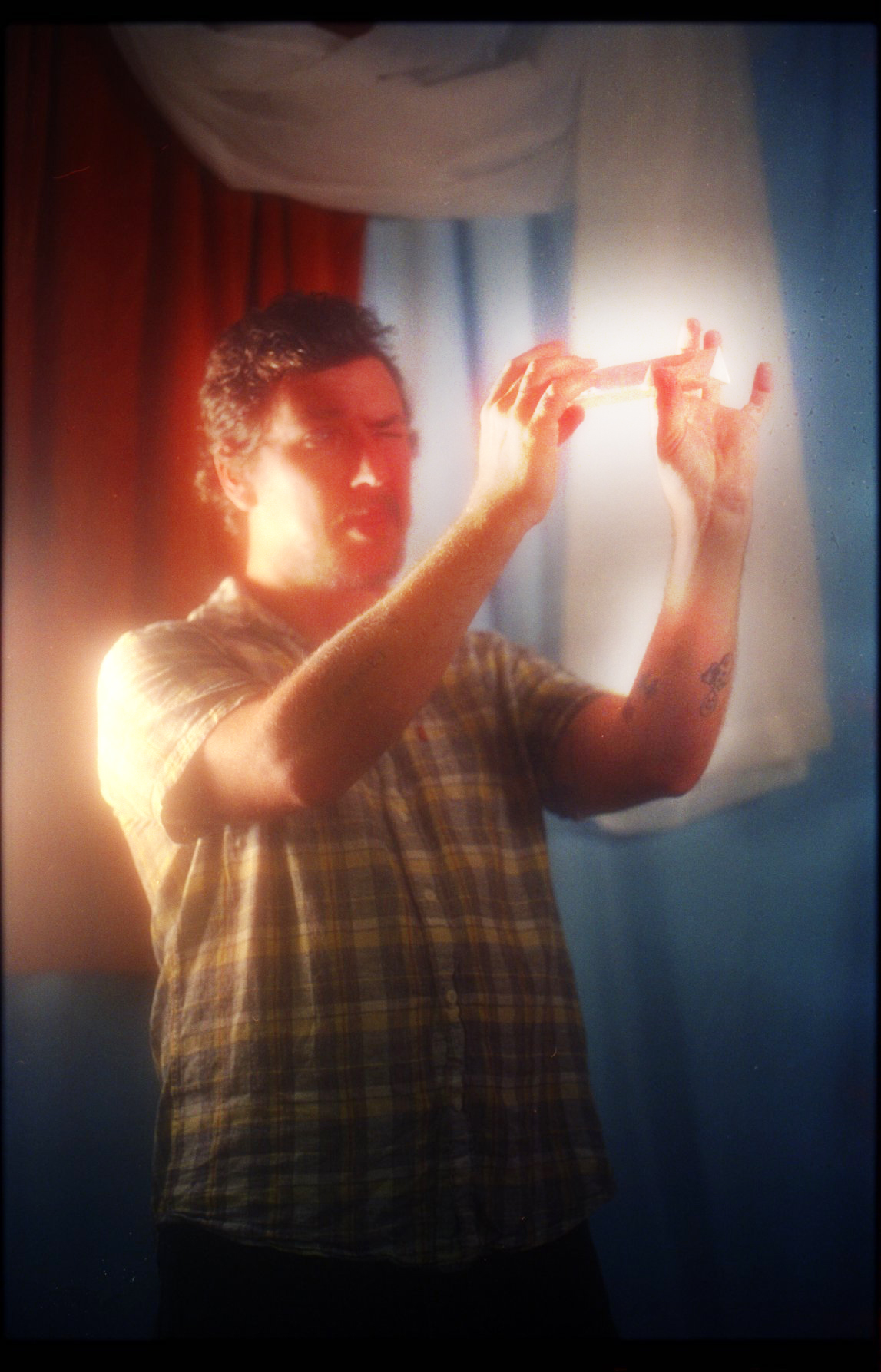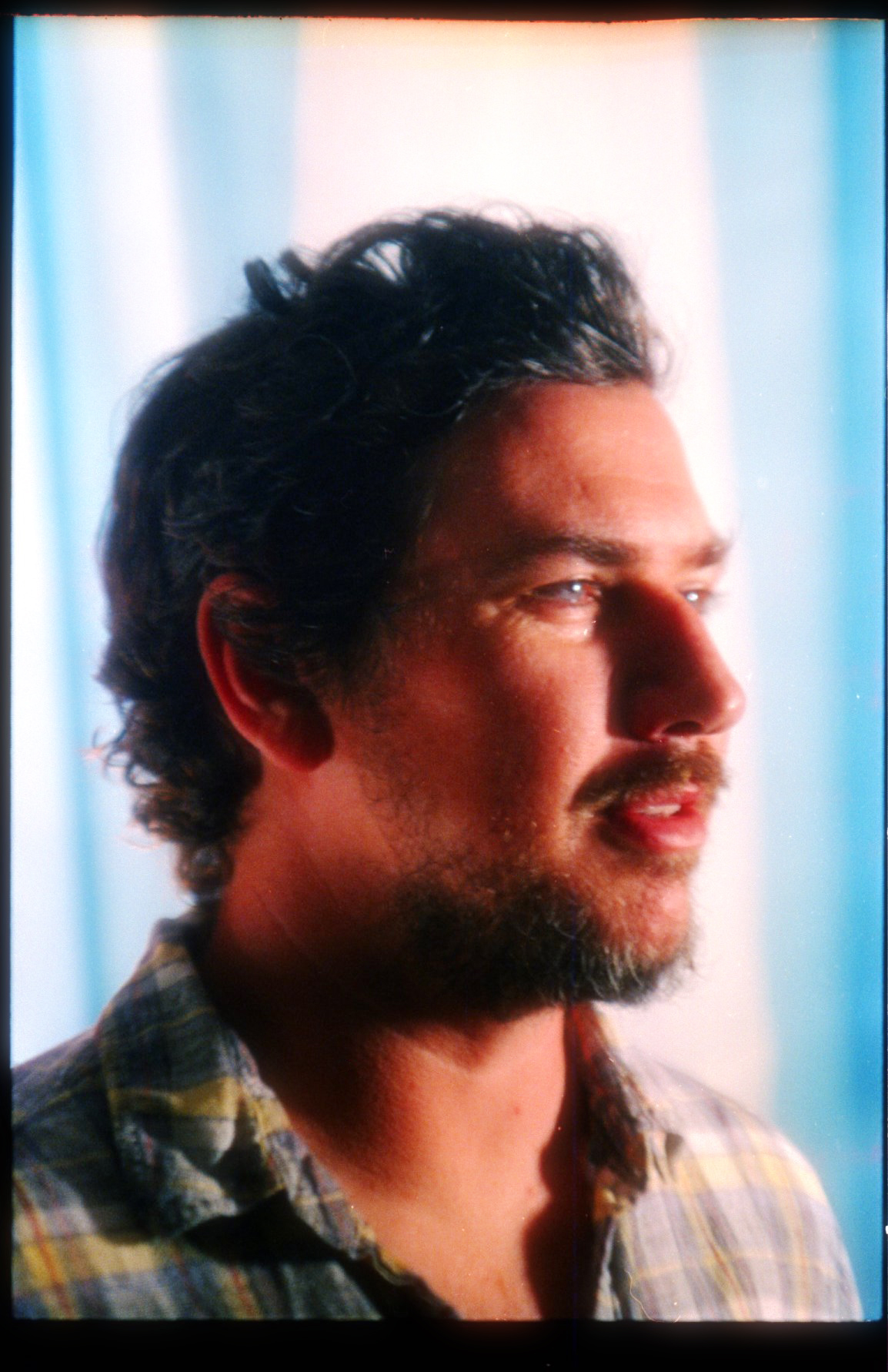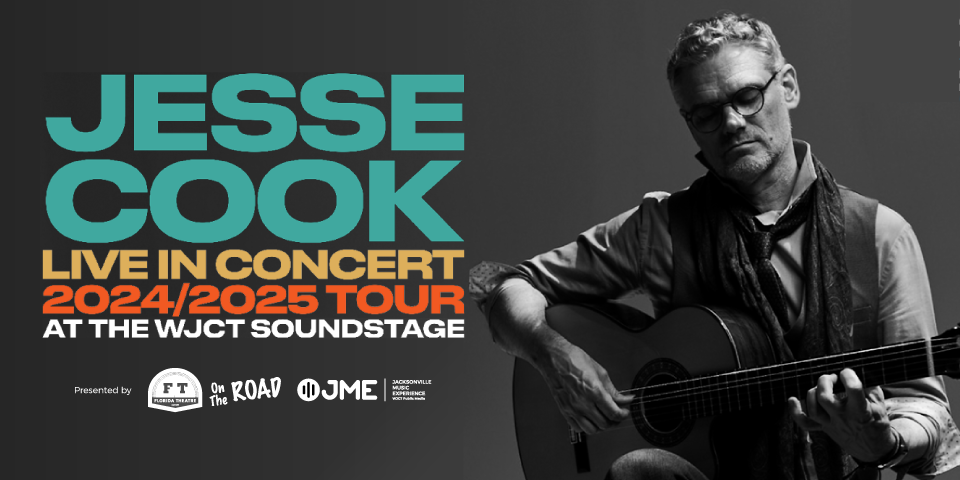
After nearly a decade of crafting introspective songs as Susto, Justin Osborne wrote his most personal record to date. On 2021’s Time in the Sun, the Charleston, South-Carolina-bred singer-songwriter and guitarist unpacks, at times, contradictory ideas of hope and despair.
Time in the Sun was written during the early onset of what has become into an open-ended global pandemic. And while universal themes, like the inner-conflict of uncertainty, permeate the record, Time in the Sun also includes Osborne’s own personal reflections on the circle of life after a year in which he both lost his father and became a dad himself.
Osborne and his band perform as Susto on Sunday, February 5th at Intuition Ale Works. We recently talked to him about the new record for our latest installment of Liner Notes.
Listen to the segment above. Full transcript of the interview below.
Hi Justin, thanks for being here.
Hey Matt, thanks so much for having me, man. It’s a pleasure to be here with you.
So Time in the Sun is the follow-up to Ever Since I Lost My Mind. It’s been described as a deeply personal record. And I know there were some big, life changing moments – both sad and joyful – that you faced in the two years between records. Can you talk about any ways that those circle-of-life experiences – specifically losing your father and becoming a dad – influenced the writing of this record?
Yeah, my third record, Ever Since I Lost My Mind, was me dealing a lot with just being on the road because that was kind of what that record was being written about, which is a lot of traveling and being away from the people you care about. But then the pandemic kind of hit, you know, in early 2020. And we had just begun to work on Time in the Sun, and I had recently become a dad in June, 2019. And then kind of early on in the Pandemic around May of 2020, my own father passed away. And so I was just kind of like, I had these new, really big life experiences that were very much things that I was processing just as a human being, but also were showing up in my songwriting. I was dealing with the loss of a parent, and my dad and I were pretty close. Then also the new responsibility and all the things you wanna say to a new child, you know, but you can’t say. I mean, my daughter’s three and a half now, but even, you know, when she was really young, I had so much I wanted to tell her and I couldn’t. So I started writing. And so I think those two things and kind of finding myself in the middle, I was almost equally like, I’m almost exactly 35-years older than my daughter and almost exactly 35-years younger than my dad. So it’s like being in that place in my early- to mid-thirties with the writing of the record and it coming out very stark. It was very obvious that I was kind of in the middle of my life there.
There’s all sorts of contemplation that goes along with being midlife. I mean, we all talk about midlife crises. But I think that’s just a symptom of all these contemplations and these kinds of things that start to hit you. And a lot more has happened in my midlife even than just those two things. But those were the two things I was really focusing on when the record was being written. I know that Time In The Sun is me taking stock of where I was in my life and also kind of trying to write a letter to the things I couldn’t say to my dad who had passed. And the things that I couldn’t communicate to my daughter who, maybe later in life, will be able to look back and listen to this record and be like, “Oh, this is what my dad was going through. This is what we were going through.”


And what about sonically, how did your approach change from Ever Since I lost My Mind to Time in the Sun? Any examples of sounds, effects or instruments that speak to that new direction?
Ever Since I Lost My Mind was recorded in a very cool recording studio that I love here in Asheville called Echo Mountain. But it was done live. We rehearsed the songs a lot. We had demoed them out a lot, but then we went in, it was just like four or five people recording and it was pretty much traditional in terms of the instruments. But then with Time in the Sun, I was still living in Charleston at the time, and I had decided I wanted to record it closer to home. Then that became my only option anyway, after the pandemic happened and no one was traveling or recording other places. I was just recording with my buddy Wolfie who produces all the Susto records.
“I was going through all these things. Part of it was painful. But part of it was beautiful. All of it was hard.”
Justin Osborne
Also with the previous album, I had taken a very insular approach and had just a certain amount of people involved. But with [Time in the Sun] I wanted to open back up to more of a collaborative approach, which is what we had done on our second and first records.So members of the band who had left years ago kept were coming back in and participating, and just friends who weren’t touring members of the band at all were collaborating. There were a lot of people and not all at once because of Covid. We did like 25 different days where there were different people coming in and adding their flavor.
And there’s also a pretty cool electronic element I think that you can hear on Time in the Sun that’s not there on Ever Since I Lost My Mind — you hear the kind of electronic juiciness. And that’s supposed to be a kind of sonically metaphor for the Sun too — just like being blasted out with all this energy. That was from a collaboration with my friend Dylan Dawkins, who performs as Persona La Ave. (He’s performed with the live band a good bit too.) I think his contribution really helped define the sonic landscape of Time In The Sun.
Let’s talk about the song “Life Is Suffering.” That phrase, many would attribute to Buddha. It’s the first noble truth. Does that reference speak to the emotional journey you were on when putting this album together?
Yeah, for sure. It definitely does. I mean, as I told you, I was going through all these things. Part of it was painful. But part of it was beautiful. All of it was hard. So that noble truth, life is suffering, is something that’s stuck with me for a long time ever since I first read it like years ago. The takeaway from that song is acknowledging, but also remembering, that life is beautiful and there are certain things that make living just enjoyable.
And this does seem like one of the more philosophical songs on the record. Bible references. Imagery of weather and natural events. Can you talk about your lyric-writing process? Are you keeping journals and then digging out and refining things that fit? Was this song more of a pouring out of emotions?
My journals are all kind of just in my head. I think my albums have turned into my journals. I have a lot of biblical imagery just baked into the way I speak just because I grew up in a religious southern household. This one it was fun to tweak it a little bit. I switch the Cane killed Abel story from the Old Testament. I’m reversing it mostly for poetic license but also because it rhymes better. It’s fun to be playful with those things, as someone who has it deep in my narrative.
Abel killed Cain and took the remains
To drop out deep in the ocean
Came back covered in the poor boy’s blood
But nobody said a thing
You know his blood runs wild and crooked at times
Swells up like the hurricane rain
A verse from “Life is Suffering” off Susto’s Time in the Sun
Also, this song just reminds me of South Carolina, where I grew up, right in the way of hurricanes and dealing with the rivers swelling up and all this stuff. Also growing up working in construction around these old salty guys who, you know, they’re smoking cigars as the sun’s coming up and they have like the sweat of the day before kind of still on ’em. These visceral memories I have of being around these guys and these men early in the morning as everybody’s getting ready to kind of go out to their job and then all day long as the sun gets high and, and really hot and you’re like, you know, paving in dead of summer and all this. Just this kind of rough life, you know?
There’s a lot of imagery from where I grew up because my grandma also grew up across from this cotton field in a very rural, like, farm-based community. Then living in Charleston where the hurricanes and the rivers swelling up with the tides and everything, and people kind of living intune with the ocean in terms of being on it and fishing it. With the biblical stuff all wrapped in; that’s very much part of the DNA of South Carolina. That song was like reaching deep back into my memories — splashes of these things. What home means and the bittersweetness. The suffering of it all, but also like the beauty of memory of a breeze on a day, you know?

In touring a record, I imagine some of the songs start to feel rote or maybe you can feel disconnected from the emotionality of them at times. Seems only natural. Is there a line in “Life Is Suffering” that you, maybe when you sing, still connect deeply with?
The first line: “Show him who’s boss with your smoker’s cough/give it to ’em early in the morning.” That line takes me back to going to work with my dad, getting there before the sun. It also just reminds me of working hard. Being in a band isn’t easy either. You gotta get up and you gotta go every day and you gotta give it to ’em on stage every night.
So I love singing that song. It’s still pretty new so it’s still fun. There are definitely songs we phase in and out, I get tired of singing or can’t really relate to anymore or whatever. But that’s one that I think I’m glad to have written because it’s a place for me in the set, you know? All these songs are, for the most part, my stories or stories I’m very close to. But that one in particular feels like my identity is wrapped up in it.
There’s two lines that kind of mirror each other in the song. There’s one that’s talking about rivers and how they swell up with the hurricane rain. And then the second verse is talking about a person who like swells up with anger and swells up like the hurricane rains or whatever. When we’re playing it live, we kind of drop out and we do this three-part harmony. It sounds like a barbershop thing or something. And it’s one of my favorite moments to do live. I think this is a song that’ll stay in our set for a long time and I’m grateful to get to kind of dissect it a bit with you here today because it wasn’t like the lead single. It’s not the song that we did a music video for or anything. But for me it has a lot of my identity wrapped up in it.
Justin Osborne thanks so much for talking with me.
Thanks so much for having me. We can’t wait to come to Jacksonville and we’re stoked to be playing some shows with Howdy too. He’s the hometown boy and love his music.
Susto plays Intuition Ale Works on Sunday, February 5th. In partnership with Flying Saucer, the performance is part of our own JME Presents music discovery series.

Mr. Al Pete and Notsucal Release Their Latest Collab, ‘G4.5’

Dinner Party, Tom Misch and More from the Neighborhood with Mr. Al Pete

An Ultra-Chill Playlist from the Latest Episode of Electro Lounge

Sing Out Loud Festival Returns With Hozier, Beabadoobee, Father John Misty, Vance Joy and More

Chicago Alt-Country Faves Wilco Return to St. Augustine with Indie-Folk Great Waxahatchee

Looking for an Alternative to Spotify? Consider Hopping on the band(camp) Wagon

Khruangbin to Bring ‘A LA SALA’ Tour to St. Augustine in April

Perfume Genius, Flipturn, Tamino + Mitski and 6 New Songs to Stream

Song of the Day | “all tied up” by Glixen




